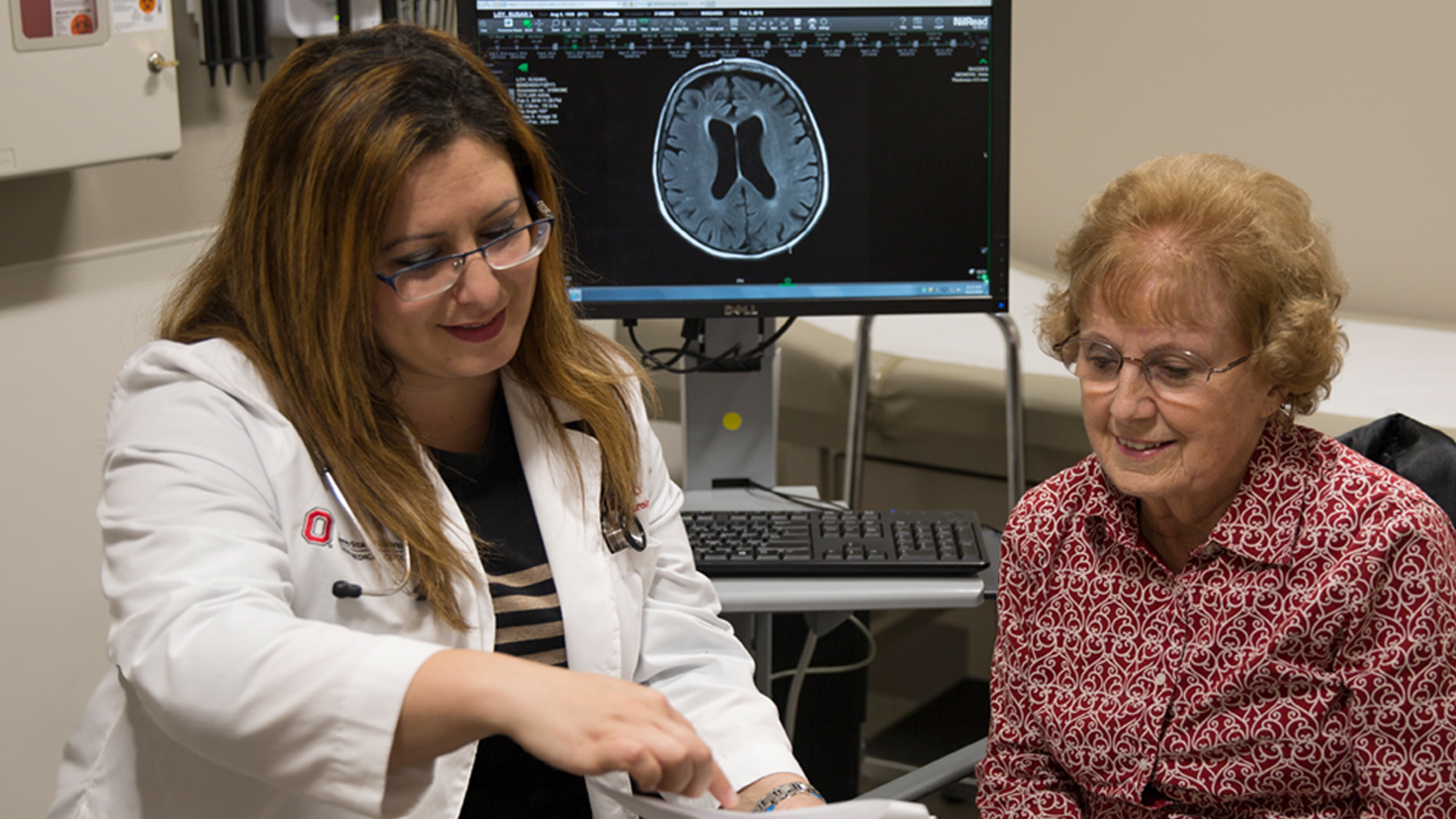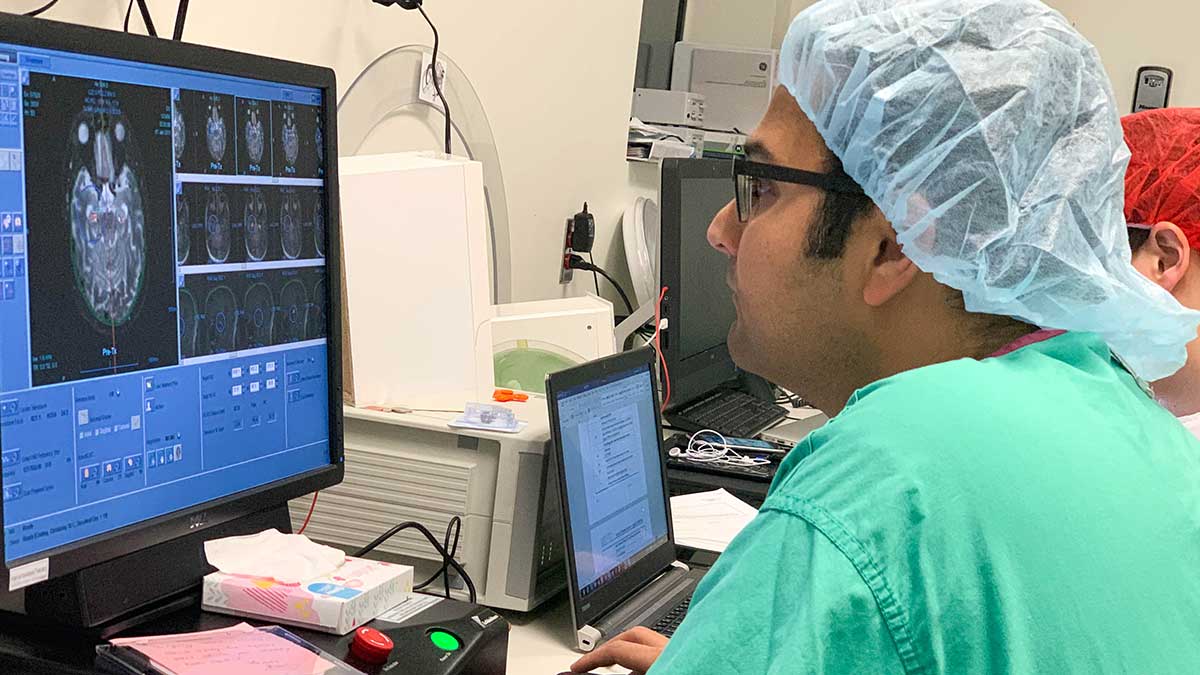Do more women develop Alzheimer's?

Alzheimer's disease is the most common form of dementia among older people. Dementia is a brain disorder causing deficits in memory and thinking abilities to such an extent that it impairs a person's ability to carry out daily activities.
What are some symptoms of Alzheimer’s disease?
Usually the first symptoms of Alzheimer’s disease are difficulty with short-term memory, such as trouble remembering recent conversations, events or people’s names.
Early symptoms may also include difficulty finding words during conversations and reduced problem-solving abilities, such as managing finances. Depression and/or loss of interest in usual activities is also very common in early stages.
As the disease progresses over time, the person may experience more difficulty with communications, get easily lost in familiar areas and have poor judgment in social situations. Behavioral changes such as agitation, irritability, wandering, hallucinations and delusions become more common as the disease progresses.
In the most severe cases, a person with Alzheimer’s disease may need help with simple activities such as walking, feeding or dressing themselves, and become dependent on their family members for care.
Women are at the epicenter of the Alzheimer’s epidemic, and the statistics are sobering:
- There are currently about 5.7 million people in the United States. with Alzheimer’s disease, the majority of whom are women (3.4 million).
- In her 60s, a woman’s estimated lifetime risk of developing Alzheimer’s disease is 1 in 6. For breast cancer, that estimated lifetime risk is 1 in 11. In other words, above the age of 60, a woman’s risk of developing Alzheimer’s disease is almost twice her risk of getting breast cancer.
- Two of every three Americans with Alzheimer’s disease are women.
- About 16 percent of females over 65 years of age have Alzheimer’s disease or another dementia, compared to 11 percent of men in the same age group.
Are women more likely to develop Alzheimer’s disease than men?
This is a very interesting and active topic in Alzheimer’s disease research. Based on what we know, there appears to be a higher risk for Alzheimer’s disease in women compared to men.
Some of these differences may be explained by the fact that women live longer, and age is a major risk factor of Alzheimer’s. However, this higher risk is also due to genetic, hormonal, biological and lifestyle-related factors.
The Apolipoprotein-E4 gene is the best-known genetic risk factor for Alzheimer’s disease, and appears to have a stronger association with this disease in women than in men, possibly due to an interaction between this gene and the X chromosome.
While estrogen protects the brain from Alzheimer’s changes in younger women, this benefit is lost in older women after menopause when estrogen levels drop. Other factors include lifestyle differences between men and women, such as higher rates of depression, and a different response to stress or sleep disturbance in women compared to men.
Interestingly, some studies suggest that the higher risk for Alzheimer’s disease in women may go all the way back to early developmental stages of brain maturation, so that women’s brains may be less able to compensate for changes caused by Alzheimer’s disease.
This might also explain why women tend to have more severe symptoms than men with the same degree of Alzheimer’s changes in the brain. There is still a lot to learn in this area and more research is ongoing.
What should women be doing to prevent or slow progression toward Alzheimer’s disease?
We don’t yet have an effective way to do this, and there is no single solution.
A combination of lifestyle factors early in life may reduce the risk of dementia, including physical activity, mental exercise, a heart-healthy diet and adequate sleep. Both sleep quality and quantity are important, so treating sleep disturbance such as obstructive sleep apnea is strongly recommended.
Regarding estrogen replacement therapy in post-menopausal women, results of studies are inconclusive and more research is still needed to better understand how such treatment may affect the brain in the long term.
As vascular disease in the brain accelerates Alzheimer’s disease, it’s important that individuals with diabetes mellitus, hypertension and/or high cholesterol are treated for these conditions. Not smoking, maintaining a healthy body weight and avoiding excess alcohol intake are also important.
Rawan Tarawneh is an assistant professor of Neurology at The Ohio State University College of Medicine and a cognitive neurologist at the Ohio State Wexner Medical Center’s Neurological Institute.




